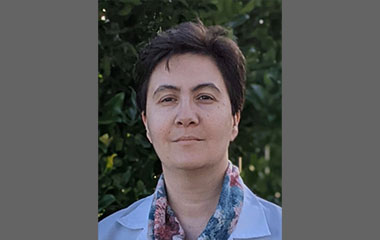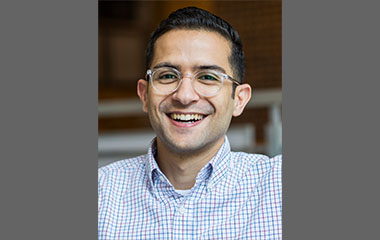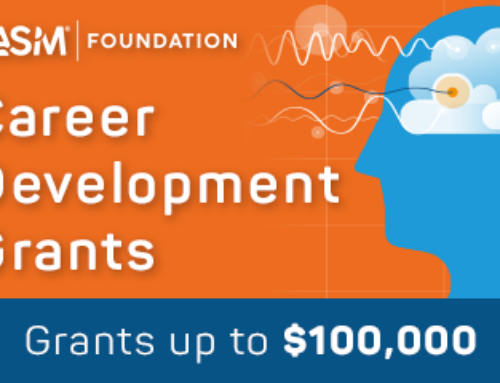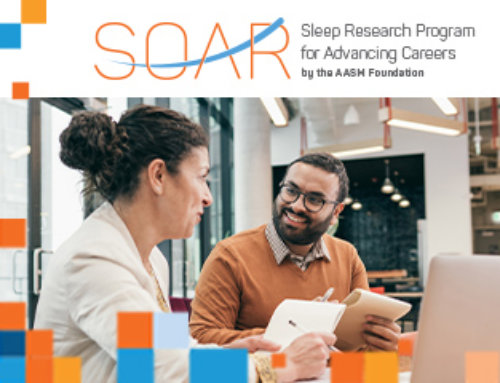National Hispanic Heritage Month, held from September 15 to October 15, celebrates the histories, cultures, and contributions of American citizens whose ancestors came from Spain, Mexico, the Caribbean and Central and South America. Hispanics/Latinx are a growing minority population in the US, that face many health disparities, including in sleep. While it is known that 1 in 3 Americans are not getting enough sleep, a study by the Center for Disease Control and Prevention found that 66% of Hispanics/Latinx in the US are getting less that 7 hours of sleep a day. Additionally, the Hispanic Community Health study/Study of Latinos found that up to 14% of Hispanics/Latinx may have obstructive sleep apnea, a sleep disorder related to increased heart disease, hypertension, diabetes and depression.
In recognition of Hispanic Heritage month, the AASM Foundation highlights projects it has supported over the years that focus on improving the sleep health of the Hispanic/Latinx community.
Sleep Knowledge, Attitude and Social Cognitions in Hispanic Patients with Sleep Disordered Breathing
 2009 Educational Project Grant
2009 Educational Project Grant
Shirin Shafazand, MD, MS
University of Miami
Goals: The goals of this project were to determine sleep knowledge and attitudes of Hispanic/Latinx patients, determine the prevalence of sleep-disordered breathing (SBD) in a clinical population of Hispanic/Latinx patients, evaluate self-efficacy, perceptions of risk, outcome expectations, and personality of Hispanic/Latinx patients diagnosed with SDB to determine the role of these constructs in long term compliance with positive airway pressure (PAP) therapy recommendations, and to lay the groundwork for an educational and behavioral modification intervention to improve knowledge and understanding of SDB and increase adherence to therapy in Hispanic/Latinx patients.
Results: Poor sleep quality was reported by half of the participants. Over 75% of the participants screened high risk for SBD, and over 65% had insomnia symptoms. Read this 2012 Journal of Clinical Sleep Medicine article to learn more about these project results.
Significance: There is a significant paucity of information on sleep knowledge and attitudes, prevalence of sleep disorders, and PAP compliance rates in Hispanic/Latinx patients. This was one of the first studies that evaluated sleep knowledge and attitudes in a Hispanic population and determined long-term PAP compliance in those patients diagnosed with obstructive sleep apnea (OSA). By better defining the population awareness of sleep issues, prevalence of sleep disorders, observing compliance rates and determining physiological, psychological and behavioral constructs in this population, this study laid the foundation for developing a culturally sensitive educational and behavioral modification program that promotes better PAP compliance in Hispanic/Latinx patients.
Obstructive Sleep Apnea in the Hispanic Community Health Study/Study of Latinos
 2011 American Board of Sleep Medicine Junior Faculty Grant
2011 American Board of Sleep Medicine Junior Faculty Grant
Neomi Shah, MD, MPH, MSC
Montefiore Medical Center
Goals: The goals of this study were to develop and validate gender-specific prediction equations for obstructive sleep apnea using symptom, demographic, and anthropometric data from the Hispanic Community Health Study/Study of Latinos, and to determine the association between OSA and subclinical atherosclerosis and whether gender modifies this association.
Results: 28% of the participants had OSA. Of the participants with OSA, they had higher prevalence of subclinical arthrosclerosis compared to those without OSA, but there was no significant association. Gender-specific OSA was not significant in this population. Read this 2013 American Thoracic Society International Conference Abstracts to learn more about these project results.
Significance: In a population-based study, the prevalence of systemic inflammation and subclinical atherosclerosis is higher in Hispanics/Latinx with sleep apnea. However, after adjustment for confounding variables, sleep apnea was not found to be associated with either systemic inflammation or subclinical atherosclerosis. Obesity appears to be a strong confounder of the above noted relationships.
Community Acupuncture Sleep Intervention for Hispanic Immigrants: A Preliminary Investigation
 2018 Focused Project Grant – Humanitarian
2018 Focused Project Grant – Humanitarian
Tracy Rupp Hockmeyer
EbbTide Wellness Studio
https://doi.org/10.1093/sleep/zsaa056.492
Goals: The goals of this project were to investigate whether Hispanic/Latinx immigrants with self-reported sleep disturbance show improvements in sleep with auricular acupuncture intervention, and to investigate whether levels of emotional distress mediated changes in sleep outcomes associated with acupuncture treatment.
Results: Emotional distress was decreased while sleep quality increased after auricular acupuncture. Read this 2020 SLEEP Abstract to learn more about these project results.
Significance: The potential impact on health of these findings indicates that auricular acupuncture in a community setting may be used to improve sleep and emotional distress in the Hispanic/Latinx immigrant community with this novel, low-cost, easily implemented group treatment option for improving sleep and emotional distress in this community. Implementation of this treatment in communities could directly benefit sleep and emotional health in Hispanic/Latinx immigrants. Study results will be used to support outreach efforts to promote auricular acupuncture for sleep and emotional distress in the Hispanic and Latinx community.
Enhancing Positive Airway Pressure Adherence Among Spanish-speaking Hispanic Adults with Obstructive Sleep Apnea
 2022 Strategic Research Grant
2022 Strategic Research Grant
Bruno Saconi, RN, PhD
University of Pennsylvania
Goals: This feasibility study seeks to enhance long-term PAP adherence among Spanish-speaking Hispanics, a group with known PAP outcomes disparities. The goals of this study will be to linguistically and culturally adapt an efficacious tele-management intervention for Spanish-speaking Hispanic adults with OSA through stakeholder engagement working groups and to assess the feasibility, usability and effectiveness of the adapted intervention
Results: Preliminary results of this project are pending.
Significance: This project will result in a linguistically and culturally congruent PAP adherence intervention for U.S. Hispanic adults and critical preliminary data to support a future larger study.
The AASM Foundation recognizes that there is much work to be done to ensure that there is continued advancement in effective diagnosis and care of Hispanic/Latinx people with sleep disorders and individuals with sleep disorders from other disadvantaged populations, thus why the AASM Foundation is allocating more than half a million towards the 2023 Strategic Research Grant: Sleep Health Disparities Research to support sleep health disparities research projects among disadvantaged populations in the United States. Letters of intent for the 2023 Strategic Research Grant: Sleep Health Disparities Research are due on October 24, 2022. For more information, visit https://foundation.aasm.org/strategic-research-award/.





